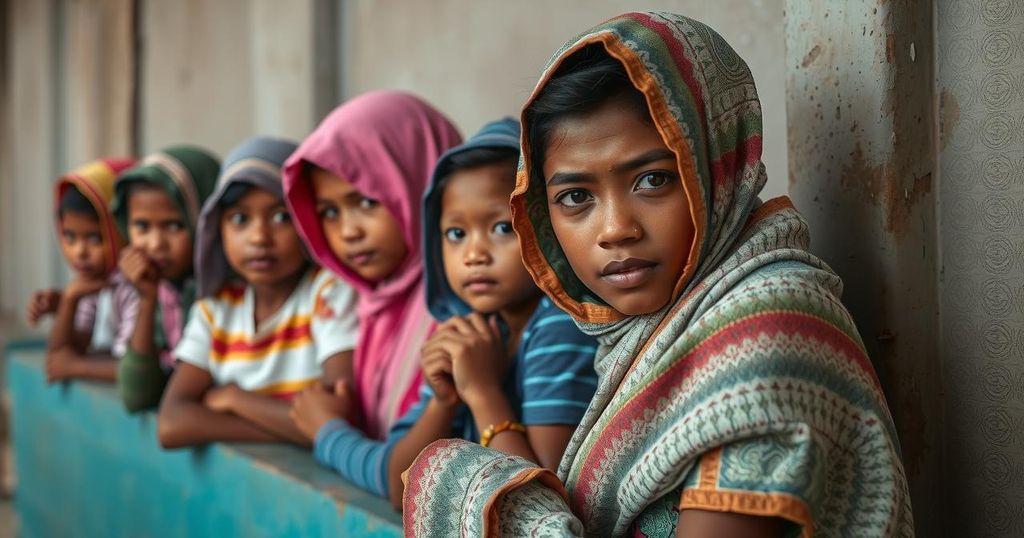UN Report Highlights Severe Challenges Faced by Refugees Amid Climate Crisis

The UNHCR report underscores the escalating crisis faced by refugees due to the intersection of violent conflict and climate change, revealing that millions are displaced annually amid rising global temperatures and insufficient funding for adaptation. The situation is particularly acute in developing countries, with calls for urgent action and financing from international forums such as COP29 to address these pressing challenges effectively.
A recent report by the United Nations High Commissioner for Refugees (UNHCR) reveals the critical challenges faced by refugees caught between climate-related displacement and violent conflicts. Climate shocks, such as floods and droughts, are exacerbating existing crises in regions like Sudan, Somalia, and Myanmar, forcing a growing number of individuals to flee their homes. UNHCR’s chief, Filippo Grandi, emphasized that refugees are increasingly on the frontline of this escalating crisis, particularly as 75% of them now reside in developing countries that are particularly vulnerable to climate hazards.
Furthermore, funding for necessary adaptation measures remains alarmingly low, with the most affected states receiving approximately $2 per person annually, in stark contrast to $161 for those in less vulnerable regions. The report documents a record 120 million people forcibly displaced by conflict and another 220 million displaced internally due to climate disasters. The alarming rise in global temperatures has led to the current year, 2023, being recorded as the hottest ever.
The equation of social instability with environmental crises has placed immense pressure on those in low-income countries. Many refugees find themselves in precarious situations, often relocating to areas with inadequate infrastructure to cope with the impacts of climate change. Andrew Harper, UNHCR’s special advisor on climate action, articulated the worsening conditions, stating, “We are seeing across the board, a hellish situation become even tougher.” The COP29 meeting in Baku, Azerbaijan, has taken initial steps toward addressing these urgent needs, with pledges of substantial funds aimed at assisting the most affected nations. UNHCR also outlined its objectives for 2030, prioritizing the protection of vulnerable populations and the transition to climate-smart services.
The worsening conditions for refugees are a confluence of climate change and violent conflicts. Climate shocks have been shown to significantly displace populations, particularly in developing nations that frequently face extreme weather events. This situation is compounded by inadequate funding for adaptation and resilience efforts. With the UNHCR reporting unprecedented levels of displacement due to both violent conflict and climate-related disasters, it is crucial to understand the complexities that confront refugees and the prioritization needed to address their plight, especially as global temperatures continue to rise.
In conclusion, the dire circumstances for refugees highlight a pressing global crisis influenced by climate shocks and violent conflicts. While international efforts such as funding commitments from COP29 are a step in the right direction, substantial action is required to support the most vulnerable populations effectively. Ensuring that refugees receive the necessary assistance and infrastructure is essential to tackle this multifaceted issue and promote resilience in the face of ongoing environmental changes.
Original Source: www.thecooldown.com







